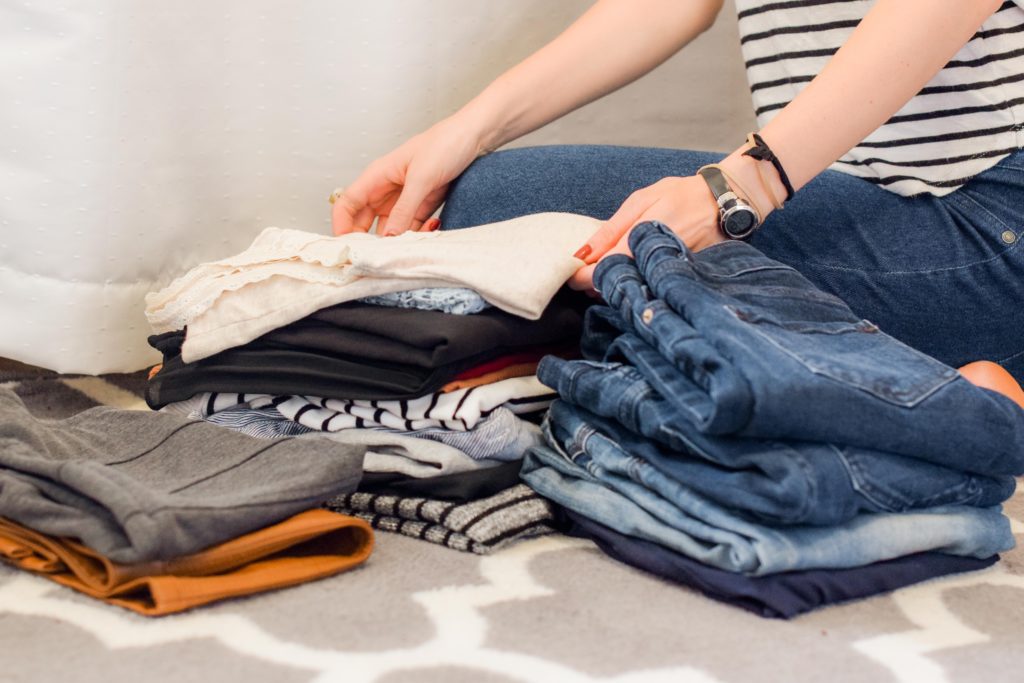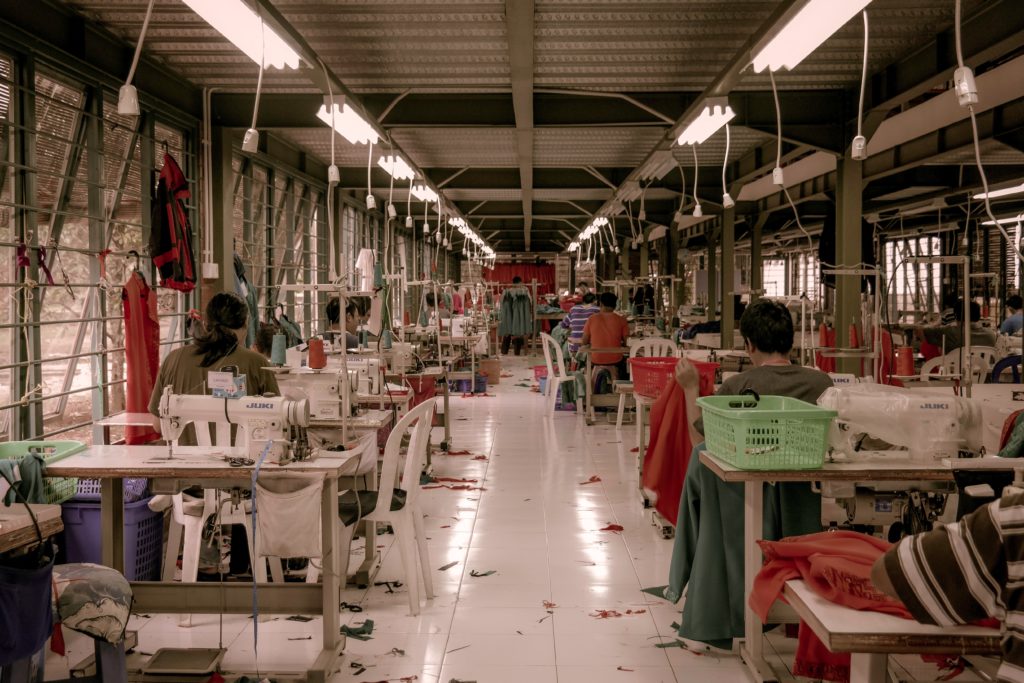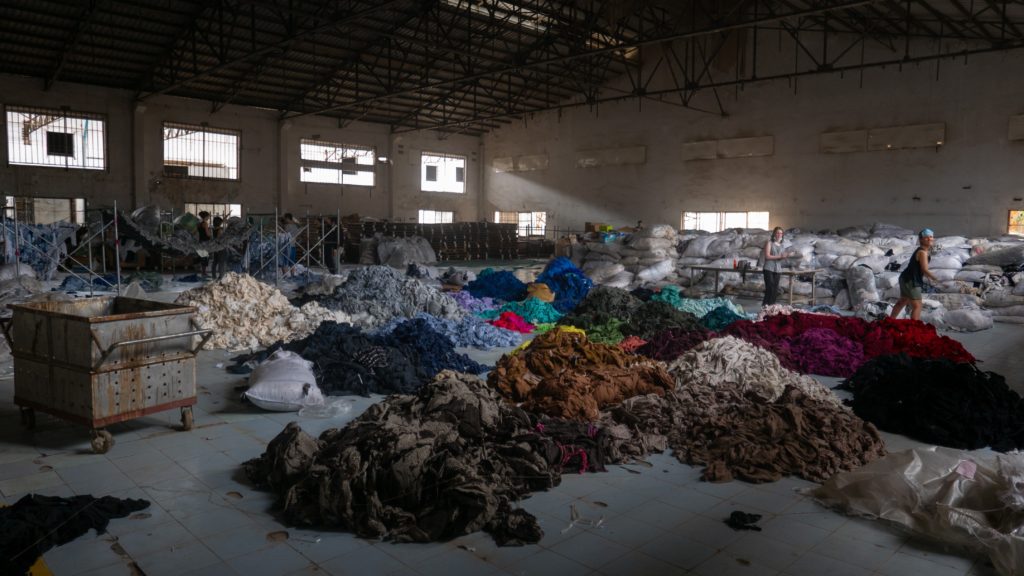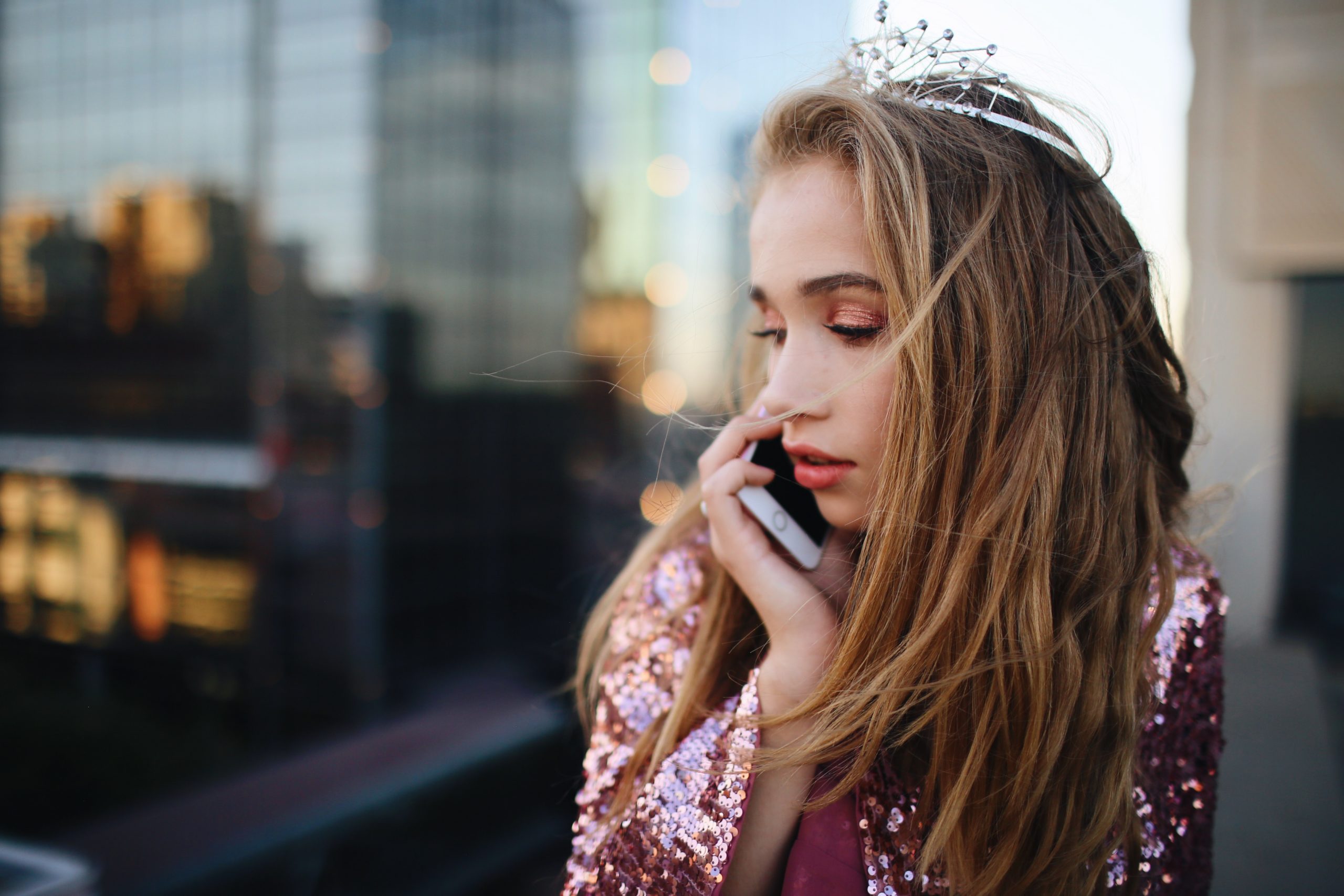10 Mins Read
As an aging millennial in a world of Gen-Zers/Zoomers, I need to say something. You have GOT to stop shopping on Shein. And when I say that, I include all fast fashion companies, whether they hide their environmental disregard or not. Yes H&M, I’m looking at you and your ‘Conscious’ range.
Social media has put pressure on us all. We can’t wear the same thing twice for fear of fewer likes and engagement and heaven forbid we don’t have at least six shirts with THE collar style of the moment. But please trust me when I say that only we, as consumers, have the power to usurp fast fashion’s grip on us. It’s a vicious cycle and Shein et al will not be the ones to break it. We need to.
I’ve found that the closer I edge to 40, the less bothered I am about looking current. Yes, I still want to dress well, maybe a bit trendily (“I’m not a regular mum, I’m a cool mum” type thinking), but not if it means that someone is being paid below living wage. Not if that perfect white shirt costs me very little but the earth a megaton of emissions. Help me Gen Z, you’re my only hope. Why? Because you are who Shein wants.
I know I sound like a boring old person, badgering you about cheap clothing. I’m something else entirely though. I’m a reformed fast-fashion consumer. BooHoo? Yes, I’ve bought from them. ASOS and I were on first name terms and the high street chains always had something I could justify getting. I’m sure I recall buying a dress “just in case a funeral cropped up”. It horrifies me now, but what I’m saying is that I know how hard it is to change habits overnight. I also know how it feels to suddenly be paying £50 for an ethical sweatshirt, compared to £8.
The world needs your help to cull fast fashion for good, but we don’t expect you to go it alone. I’ve been thinking about how I managed to cut myself off and here are a few tips you might find handy:
1. Stop following celebrity influencers
I could list at least 30 celeb influencers I consider to be dangerous. I say this with respect to their lack of selectiveness when promoting products and brands. Molly-Mae is a topical one (she just wants you to buy Pretty Little Thing clothing she earns a HUGE commission on). I hope the popularity of the Kardashians is already waning, but anyone that promotes weight-loss aids and shapewear, while being called out for photoshopping? Hard pass. You all deserve better, realistic, and honest role models. By all means, follow people you admire, I know I do, but be discerning. You can be. You should be.
I highly recommend looking for body positivity accounts to follow because they immediately cut through the idea of thinness being superior and clothing being everything.
Vogue Business surveyed 105 Gen Zers in 2020 and more than half said they buy from fast fashion brands. A similar number declared they would keep buying from even the worst and most notoriously unethical names, regardless of the consequences. Why? Because influencer marketing has got you trapped. Unfollow, mute or block. Just fill your space with positive messages.

2. Go cold turkey but make it a challenge
A few years back I initiated a circuit-breaker shopping challenge. I decided to go three months without buying any new clothes. It came after I realised I wore less than half the items I owned on a regular basis. Actually, that’s not quite true. It came after I was looking for a pair of jeans to wear and none of the NINE clean pairs would do. Nothing makes you feel wasteful like owning so many versions of something but only liking one. Long story short, I struggled at first, then enjoyed the process, and now, I have a capsule wardrobe. It’s mostly vintage dungarees and plain t-shirts, so by proxy, I am fashionable.
The first few days of no-buying were tough. I sat on the sofa scrolling through Zara, H&M, and even Boohoo’s websites, planning what I would buy when the challenge was up. As the days went by it got easier and then I started reading about fast fashion. A few gentle articles turned into deeper reading about the living and working conditions of global garment workers. How some women in Asia are paid just £4 per day and that is a generous wage. Those cheap clothes started to feel very expensive indeed and I knew I could do something. I could not buy them ever again. It’s such a small gesture in the scheme of things but as demand slows and awareness grows, Shein and its peers WILL disappear.
3. Choose a reward
After three months of no buying, I had a rather large amount of money saved. All those £5 t-shirts add up, apparently! I decided to invest in a pair of organic cotton jeans from an indie brand and a pinafore dress from a local maker. Two items were all I could buy with my money. The same amount would have probably bought me about 20-25 fast fashion items. It hurt at first but then felt amazing. I was wearing spectacularly well-made clothing. From companies that offer lifetime repairs. I never see anybody else wearing the same things as me and they feel great on. Quality, consideration, and craftsmanship are delights to sheath your body in.
4. Start spreading the word
Finally, revel in your newfound freedom from fast fashion. It’s a huge achievement to break away from the norm and forge your own version of stylish sustainability. Use it as a niche, take pride in the example you set for others, and know that you are positively impacting the environment.
Sustainability tends to go out of the window as boredom creeps in. We’ve all been there, scrolling on our phones when there’s nothing on TV. Suddenly we see a dress that looks nice, is only £20 and has free next-day delivery. Of course we buy it. Because sustainable fashion isn’t trendy yet. Ethical companies don’t want to pay Mark Zuckerburg money to promote their products on Facebook and Instagram (bravo to them), so Shein floods our feeds instead. Top tip: next time you see a sponsored post for Shein, mark it as irrelevant and it shouldn’t pop up again. My Instagram exploring has been far nicer since I did!

Capitalism is a cruel mistress. For years we have been told that more is better, fashion is seasonal and only the uninitiated fall behind. Now, all of a sudden, we’re being told about capsule wardrobes, circular economies and buying less. Even worse, these new ideals aren’t personally incentivised. The only upsides to you embracing them are living wages for people you will never meet and positive climate impacts that you can’t see. But let’s talk about these for a moment. Because I know that you genuinely care about these issues.
A living wage. Three innocuous words that are so important. Being paid a living wage means that people as young as you and often younger can afford to eat and survive. They don’t care about keeping up with the latest trends, they simply want to earn enough to live undercover and support their families. The height of inspiration in communities forced to work for brands such as Shein is having enough food for everyone they live with, each day. It’s not the PU handbag that a Love Island ‘star’ has been paid to be seen carrying. A living wage doesn’t cover any luxuries, including medicine. It simply means food and shelter and these are often still lacking. I don’t think I know anybody that wouldn’t balk at being expected to work for £4 an hour, let alone £4 per day.
Then comes the climate issue. Cheap clothing manufacturing accounts for a vast amount of climate change. Up to 10 percent of greenhouse emissions from all human activity. It takes a lot of energy and water to make cheap synthetic and virgin materials, most of which can’t be recycled. Add in toxic dyes, water pollution, and emissions-heavy production plants and you have a serious sustainability problem. Even if Shein released two seasons a year, like high-end fashion houses, it would still be contributing to climate change on a massive scale. The fact that it cycles new pieces every week ups the ante enormously.
Shein is just one of many offenders but for the sake of a clear example, it’s the one I’ll focus on. So. what makes Shein so bad? Almost every facet of the enterprise.

It was founded in 2008, in China. All clothes are still made there and flown over by the tonne. That’s the first issue. Constant transcontinental flights just for clothes are leaving a massive carbon footprint. None of which is offset. Next comes the issue of transparency. An ethical company will never try to hide who makes its products, where and for what wage. Lucy & Yak are a great example. On its website, you will find details about where clothes are made, by who, for what wages, and from what materials. It is not hard to release this information when there’s nothing to hide. Good luck unearthing any of this information about Shein. Code of conduct claims are found on the site but are deliberately vague and place the burden of ethical production on business partners, not Shein itself. It is widely assumed that workers are not paid a living wage and no denial has ever been issued. This means that the beanie hat I remember buying from Shein contributed to trapping someone in a cycle of poverty. It’s not something I want to ever do again.
Even on a superficial level, Shein has flouted countless opportunities to be a decent company. Regular accusations of artwork theft from independent brands and artists have been made and substantiated. There was also a furor over the sale of a swastika necklace. It claimed it was the spiritually directional swastika but still. In an ideal world you’d like to think the company was just being naive. Me? I feel as though it deliberately orchestrated something that would gain a huge amount of free publicity and a swathe of new customers who were shocked at how cheap everything is. Call me cynical.
As a company, Shein exploits workers and independent designers as it makes hoards of cheap clothing from unsustainable materials and flies it around the world for profit. It’s garbage dressed up as fashion. What you might not realise is that the company exploits you too. It sees you as an easy target because you want to be current. It knows that you are the future and by trapping you now, it will have customers for a long time. It wants to make you feel insecure that you’re not buying enough, so bombards you with discount vouchers in newsletters and exclusive VIP offers. It’s just plain rude and it shows that Shein is grossly underestimating you all.
Your generation is driving the secondhand/vintage/resale clothing markets forward. It’s fantastic to watch and be a part of. Yes, I’m sitting here before my toddler goes to bed, flicking through your wardrobes on Vinted. I’m a fan of Depop as well, especially since it went totally climate neutral. If your main draw to Shein and its bedfellows was that it is cheap to buy from, preowned clothing takes bargain hunting to a whole new level. It makes me feel good and smug too. No shame in admitting that. Where once there were just eBay and vintage stores, now there are plenty of apps and resale platforms that cater to this need. You can sell your unwanted clothing, leave the money in your online accounts and use it to treat yourself to new pieces.

This is a cycle that prevents buying new and keeps you rotating your outfits. It’s perfect for anyone who needs to keep their socials updated, while wanting to be more ethical. Welcome to the circular fashion economy guys, we are so glad to have you here. After all, who wants Shein when you can have Stella McCartney?
Don’t want to wear someone else’s clothes? That’s fine, make your own. It takes practice and effort but making your own clothes means nobody else will have the exact same items as you. You can upcycle old pieces, cut them up for material and get as creative as you dare. Who knows, maybe Shein will be stealing your look in a few weeks’ time too. Good luck taking them to court though. Don’t get discouraged if your first attempts aren’t great. I have t-shirts and knickers that I’ve made that frankly do not make the grade. I use them as cleaning rags!
This is a lot to take in, I know that but you’re the ones being underestimated by cynical companies Gen Z. It’s time to find your power, because it’s awe-inspiring. You are the generation who will make real change happen, now. Millennials and Gen X? We aren’t many companies’ target audience, but you are. You can boycott the brands that are burning our planet and keeping workers in poverty. Start saying no to Shein and its peers so we can have a future discussion about sustainable clothing brands and better business models.
Please.
All images courtesy of Unsplash.




